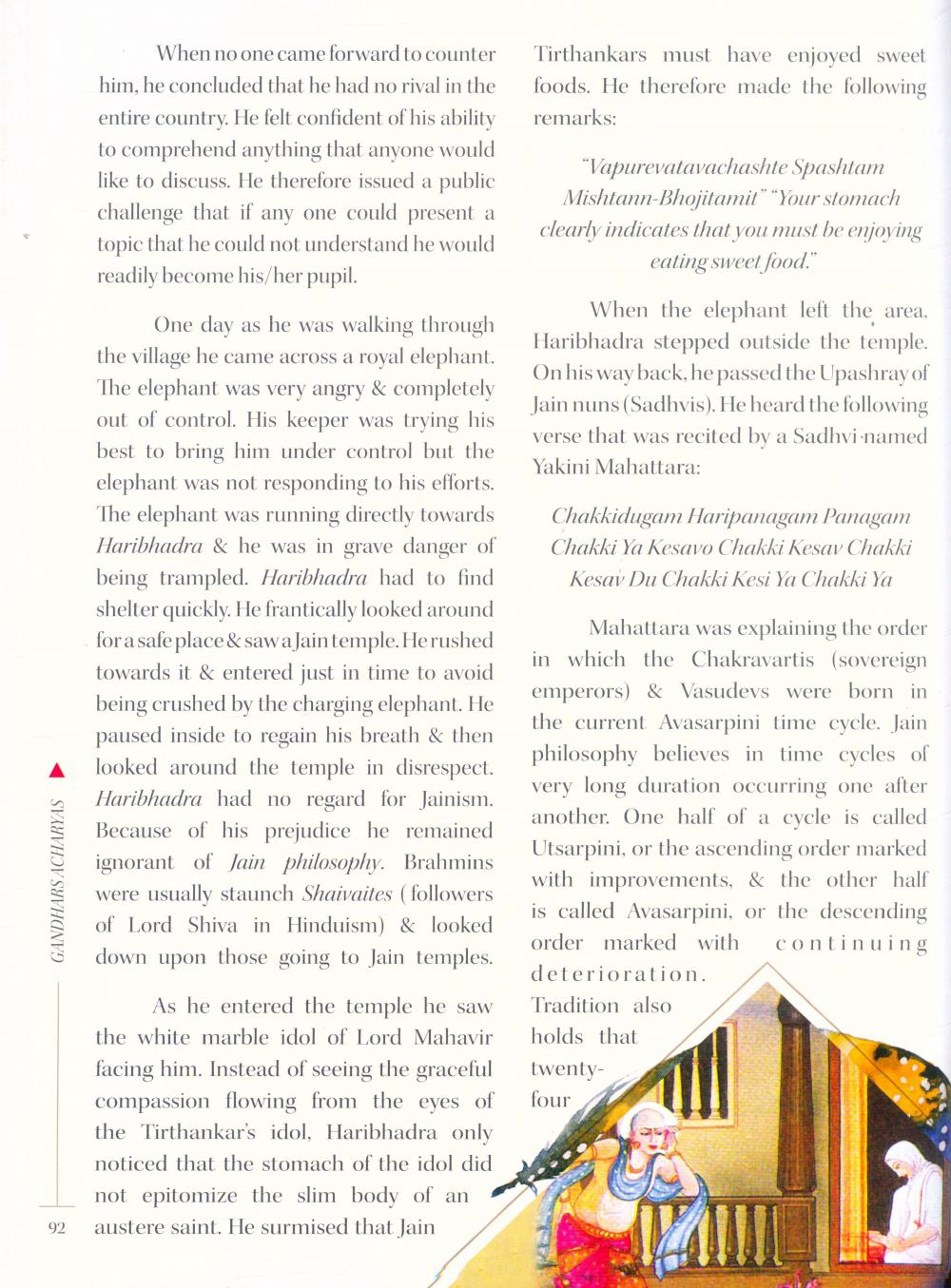________________
GANDHARS ACHARYAS ►
92
When no one came forward to counter him, he concluded that he had no rival in the entire country. He felt confident of his ability to comprehend anything that anyone would like to discuss. He therefore issued a public challenge that if any one could present a topic that he could not understand he would readily become his/her pupil.
One day as he was walking through the village he came across a royal elephant. The elephant was very angry & completely out of control. His keeper was trying his best to bring him under control but the elephant was not responding to his efforts. The elephant was running directly towards Haribhadra & he was in grave danger of being trampled. Haribhadra had to find shelter quickly. He frantically looked around for a safe place & saw a Jain temple. He rushed towards it & entered just in time to avoid being crushed by the charging elephant. He paused inside to regain his breath & then looked around the temple in disrespect. Haribhadra had no regard for Jainism. Because of his prejudice he remained ignorant of Jain philosophy. Brahmins were usually staunch Shaivaites (followers of Lord Shiva in Hinduism) & looked down upon those going to Jain temples.
As he entered the temple he saw the white marble idol of Lord Mahavir facing him. Instead of seeing the graceful compassion flowing from the eyes of the Tirthankar's idol, Haribhadra only noticed that the stomach of the idol did not epitomize the slim body of an austere saint. He surmised that Jain
Tirthankars must have enjoyed sweet foods. He therefore made the following remarks:
"Vapurevatavachashte Spashtam Mishtann-Bhojitamit" "Your stomach clearly indicates that you must be enjoying eating sweet food."
When the elephant left the area, Haribhadra stepped outside the temple. On his way back, he passed the Upashray of Jain nuns (Sadhvis). He heard the following verse that was recited by a Sadhvi named Yakini Mahattara:
Chakkidugam Haripanagam Panagam Chakki Ya Kesavo Chakki Kesav Chakki Kesav Du Chakki Kesi Ya Chakki Ya
Mahattara was explaining the order in which the Chakravartis (sovereign emperors) & Vasudevs were born in the current Avasarpini time cycle. Jain philosophy believes in time cycles of very long duration occurring one after another. One half of a cycle is called Utsarpini, or the ascending order marked with improvements, & the other half is called Avasarpini, or the descending order marked with continuing deterioration.
Tradition also
holds that
twentyfour




